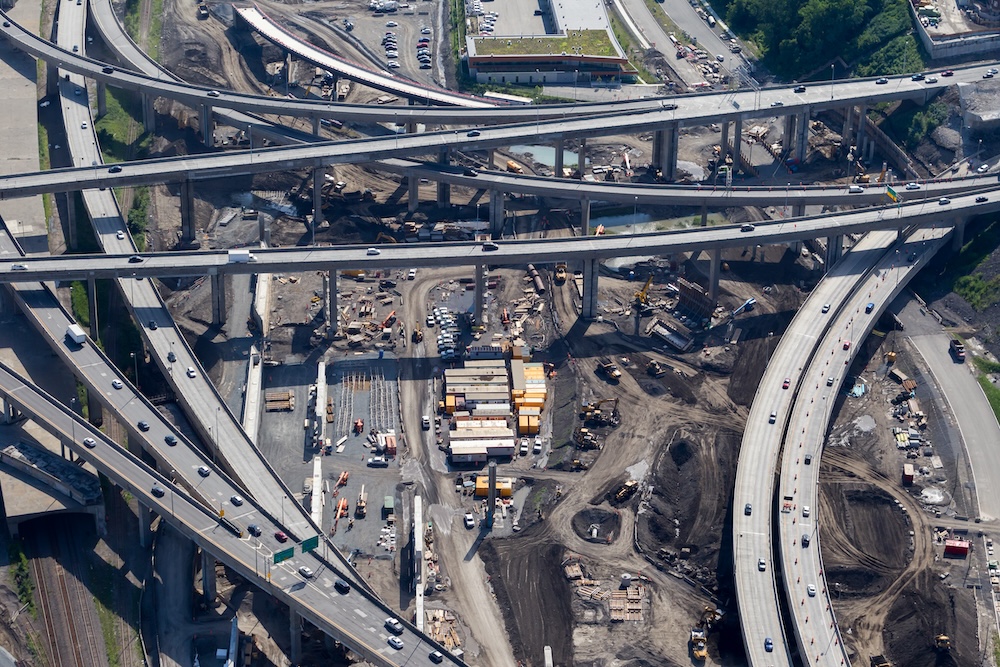Related Articles
— 10 min read
A Project Manager’s Role in Construction



Last Updated Sep 10, 2025

Alex Magnan
Manager, Solutions Engineering, Canada
Alex Magnan is a Solutions Engineer for Procore Technologies Canada. Alex has a strong construction and engineering background from his Bachelor of Applied Science in Civil Engineering to working as a Project Coordinator at Reliance and Turner Construction Companies. Alex is also a Procore Certified Procore Administrator; BIM Manager; and Project Manager for Resource Management, Financial Management, Core Tools, and Quality & Safety.

Scott Bornman
Principal, Operational Excellence
16 articles
Scott Bornman is a managing strategic product consultant at Procore Technologies. Scott began his long construction career after a successful 8+ years in the U.S. Army, where he selected to be U.S. Army Recruiter following Desert Shield/Desert Storm. Scott has had many roles in the construction field since then, working his way from a project superintendent, to an owner's rep, to a senior project manager and even Vice President of Construction at Bognet Construction and Director of Construction at Plaza Construction before joining the team at Procore.

Kristen Frisa
Contributing Writer
113 articles
Kristen Frisa is a contributing writer for Procore. She also contributes to a variety of industry publications as a freelance writer focused on finance and construction technology. Kristen holds a Bachelor of Arts in Philosophy and History from Western University, with a post-graduate certificate in journalism from Sheridan College. She lives in Ontario, Canada.
Last Updated Sep 10, 2025

The project manager (PM) on a construction project is vital in delivering a successful project. The PM is responsible for providing the project the clients expect to receive safely and within a reasonable time and budget.
A construction project manager is not at the top of the leadership ladder — that would fall farther up in the construction company’s executive structure. However, the PM is ultimately responsible for the successful delivery of a specific construction project. It can be stressful and time-consuming, but a rewarding job.
This article will discuss the role of the project manager throughout a typical construction build, what it takes to be successful in the role and the career path to become a project manager and beyond.
Table of contents
What is a PM's role on a project?
A good project manager takes ownership of a project, accepting accountability for everything about its success or failure. Below are some of the tasks the project manager takes on over the course of a project.
Tendering
A contractor may not name a project manager until tenders are submitted, but in many cases, the PM will be involved in project planning very early on.
General contractors may bring in project managers right at the outset of each tendering process, where they become integral to winning a contract on a design-build or a design-bid-build project. Projects in Canada benefit from having early and consistent input from the PM, which provides continuity and a greater understanding of all facets of the project.
Schedule Creation
By the time a project owner awards a contract to a builder, the work has an assigned start date, some specific milestone dates, and a substantial completion date. From those constraints, the project manager builds out the project schedule and then becomes responsible for completing the work by those milestone dates.
Staying on budget requires a lot of insight and proactive problem-solving. The PM will work with the superintendent to build a look-ahead to ensure that every aspect of the work is set up for success – that the equipment, materials, and labour will all be ready when they're needed and that all the tasks and subtasks get completed on time to stick to that schedule.
Facilitating the Work
The PM plays a supporting role in ensuring everything is in line for employees and subcontractors to do their work. Superintendents report to project managers daily regarding what's happening on the site so they can facilitate all upcoming tasks.
PMs also facilitate work by procuring supplies for the job site, including office supplies, signage, and security equipment. On some projects, PMs are in charge of all materials procurement for the entire site. In those cases, the project manager must oversee the ordering, delivery, inspection and storage of materials as needed.
Reporting and Communications
Together, the PM and the superintendent lead a weekly meeting with specialty contractors to establish work progress and understand the challenges of ongoing and upcoming work. The superintendent may take the lead during these meetings, with the PM offering support when needed.
The PM uses superintendent reports to compile another report to add to the agenda of a weekly owner, architect, and constructor (OAC) meeting to touch base and report on where the project stands.
The Face of Leadership
PMs stay updated with project sites through their superintendents’ daily reports and by visiting sites regularly. While on-site, the project manager can get a first-hand view of how the building is coming along, find out if there is anything else the site staff or subcontractors need and courier paperwork or supplies between sites and the office and warehouse.
A seasoned project manager may be working on two to five jobs at a time, and regular site visits are necessary to maintain a connection with each. Site staff and specialty contractors may feel more accountability after seeing and interacting with the project manager.
What makes a good construction project manager?
The success of some projects relies heavily on the performance of the PM. Talented project managers can make a name for themselves and have owners seek them out specifically for their projects.
Leadership Skills
A project manager works not only with a team but with a team of teams — and serves as a conduit between construction stakeholders, including the owner, subcontracting teams and materials suppliers. This also includes ensuring projects meet both federal and provincial regulations such as the National Building Code of Canada (NBC) and safety regulations as outlined by the Canadian Centre for Occupational Health and Safety (CCOHS).
Part of being a good leader is earning the trust of colleagues. That means taking the blame when something goes wrong and passing the praise when something goes right. Working harmoniously with so many people means having the humility to understand that the general contractor depends on the hard work of the subcontractors doing the building in the field. Project managers who run a safe, clean site and respectfully interact with subcontractors will have a better rapport and motivate better work from their teams.
Communication
Project managers need solid and empathetic communication skills. Smooth project operations require proactive reporting to owners and executives within their organization about challenges and changes to the project. PMs relay information between superintendents, subcontractors, and office staff, actively listening to concerns and brainstorming solutions.
In short, the best project managers preemptively share everything going on with their jobs with everybody who needs to know, as project success may depend on it.
Eagerness to Learn
Construction is ready for change and growth. Construction professionals who succeed in leadership roles analyse, think critically and are prepared to try something new. Inevitably, those who rely solely on set standard operating procedures without interest in improvement will be surpassed by those with fresh ideas. Project managers should be eager and hungry to learn ways to get better.
Great project managers are built by learning from mistakes and moving on. PMs who remain curious and able to adapt to new methodologies and technologies could be the driving force for change across the construction industry.
How One Project Manager Earned the Client's Goodwill and Saved a Project 7 Figures
A construction firm was tasked with renovating an entire city block in Montreal in buildings that housed a major law firm. The construction company was charged with creating a project plan that moved the lawyers out of their offices two floors at a time while the offices were renovated. Each move created a lot of upheaval for the law offices, but a plan was set and agreed to.
Long months into project planning, a project manager came in with fresh eyes and claimed that a better plan could reduce disruption to the lawyers and save money in the process. Sure enough, a few days later, the PM produced a plan for saving 2,800 individual office moves throughout the project by restaging the project sequences.
Not only did the new plan save the project more than a million dollars, it earned a great deal of goodwill from the lawyers who had to move significantly fewer times over the course of the work. Impressively, the project manager was able to look at the project critically to discern a better way of doing things. Further, he was also able to speak up to challenge superiors to rethink the plan.
Similarly, in Toronto, the Union Station revitalization project demonstrated how critical a well-organized PM team can be in handling complex projects while maintaining historical integrity and minimizing disruptions to daily operations.
How can I become a project manager?
There's no single path to becoming a construction project manager. Some project managers work their way from skilled trades workers to construction project leaders. Others take a course in construction management and emerge as a PM straight from school. Below are some typical career paths PMs can take to get the role.
Get a construction project manager degree.
Many Canadian schools, like Centennial College, Durham College, and the University Of British Columbia offer construction management degrees and certificates to prepare students for a role as a project manager. A new graduate may expect to get a role as a project coordinator, working on multiple projects over the course of a few years under an experienced project manager. Students in the civil engineering or mechanical engineering field can also explore the role of project coordinators at construction companies.
The next step might be to work as an assistant project manager (APM) on a few projects before being given a project manager role on a very small, tightly controlled project with oversight from a more experienced colleague.
Arrive from another sector.
Some project managers arrive from entirely different industries and must learn the ropes of construction on the job. These construction managers may expect to remain project coordinators for longer before progressing to assistant project manager and, finally, project manager.
Professionals from outside the construction world should expect to spend a great deal of time learning how construction works. Knowledge gleaned in the field tends to be harder to come by because it's time and schedule-driven, so dedicated time on-site can help cover the basics for an industry novice.
In any scenario, project managers are given smaller, simpler, and shorter projects, with significant oversight from superiors. As experience grows, the PM's projects gradually increase in size, duration, and complexity.
Start in another construction role.
Some construction project managers begin in skilled trades positions and work their way into management over time. Here's how that progression could look:
- A person working in pipefitting who shows responsibility and leadership qualities can be put in charge of other pipefitters.
- Eventually, the pipefitter could be offered a position as a foreman and then a superintendent on a single project.
- The employee could then become a general superintendent who oversees multiple projects simultaneously or a project manager.
The construction profession favours hard work and consistency. A worker who comes to work ready to do clean, careful, and safe work and has an open mind can learn and rise through the ranks.
Is previous construction experience necessary?
Project management is a huge field that exists across industries. It's tempting to think that project managers straight out of school and experienced professionals from other industries could pop into the construction world and do the job.
After all, the fundamentals are the same, no matter whether you're managing huge marketing teams or a construction project.
Leadership, scheduling, and problem-solving are common among them all. However, the bigger and more complex the project becomes, the more critical it is that the PM has some background industry knowledge.
While it's possible to move straight from schooling or another industry into a project coordinator role or even into a position as an APM, a project manager on a construction site would benefit greatly from some years in the construction industry. No matter how strong the communication skills are, a project manager won’t understand the flow of work on a construction project or the needs of the labourers and subcontractors without some time on the job.
On the other hand, extensive construction experience could actually be detrimental to successful project management. A seasoned pro needs to stay flexible and ready to learn rather than relying on set ideas, which leaves little room for growth within the role.
The Future Outlook for Project Managers in Construction
Because of the labour shortfall experienced in recent years, the main challenge within the construction industry in coming years may be adequately training new hires before putting them in leadership positions.
Talented construction project managers will remain critical within construction companies into the future. Without a knowledgeable, capable leadership team, construction companies will be limited in the number of projects they can take on.
Technology has already changed a project manager's role within the construction landscape. Already, the PM can visit sites virtually, hold meetings via Zoom, and share documents across sites at the touch of a button.
As time goes on, more project managers may be assisted by artificial intelligence tools that can help schedule, strategically match up workers to tasks according to their skill sets, and create look-ahead that sense time crunches earlier on. However, technology is here to aid — not replace — project managers as leaders, communicators and critical thinkers.
Categories:
Written by

Alex Magnan
Manager, Solutions Engineering, Canada | Procore Technologies
Alex Magnan is a Solutions Engineer for Procore Technologies Canada. Alex has a strong construction and engineering background from his Bachelor of Applied Science in Civil Engineering to working as a Project Coordinator at Reliance and Turner Construction Companies. Alex is also a Procore Certified Procore Administrator; BIM Manager; and Project Manager for Resource Management, Financial Management, Core Tools, and Quality & Safety.
View profile
Scott Bornman
Principal, Operational Excellence | Procore Technologies
16 articles
Scott Bornman is a managing strategic product consultant at Procore Technologies. Scott began his long construction career after a successful 8+ years in the U.S. Army, where he selected to be U.S. Army Recruiter following Desert Shield/Desert Storm. Scott has had many roles in the construction field since then, working his way from a project superintendent, to an owner's rep, to a senior project manager and even Vice President of Construction at Bognet Construction and Director of Construction at Plaza Construction before joining the team at Procore.
View profile
Kristen Frisa
Contributing Writer | Procore
113 articles
Kristen Frisa is a contributing writer for Procore. She also contributes to a variety of industry publications as a freelance writer focused on finance and construction technology. Kristen holds a Bachelor of Arts in Philosophy and History from Western University, with a post-graduate certificate in journalism from Sheridan College. She lives in Ontario, Canada.
View profileExplore more helpful resources

2026 Forecast: 5 Construction Trends That Will Lead to True Tech Transformation
I was walking a job site recently with an old friend—a superintendent I’ve known for years. He pointed at a table cluttered with iPads and phones and gave me a...

Agentic AI as a Capacity Multiplier: Why Construction Leaders Are Hiring “Digital Employees”
It’s not every day you see Procore, CMiC, and EllisDon sharing the same stage. But frankly, the topic demanded it. In a recent webinar hosted by On-Site Magazine, we joined...

The 5 Key Types of Construction Contracts
There are five common types of construction contracts: lump sum (or fixed price), time and materials (T&M), unit price, guaranteed maximum price (GMP), and cost-plus. Each of these contract types...

Time and Materials (T&M) Contracts in Construction: Guide for Contractors & Project Owners
A time and materials (T&M) contract is a construction agreement where the project owner pays the contractor for all material and labour costs on a project as well as contractor...